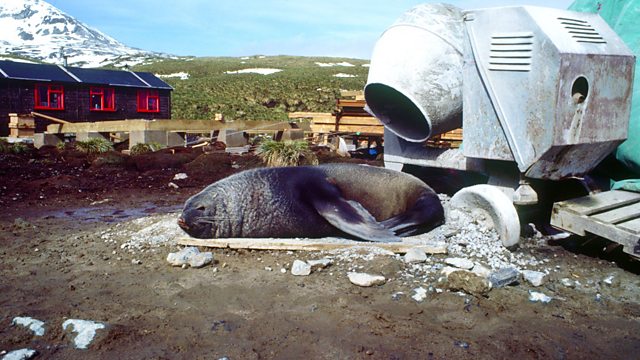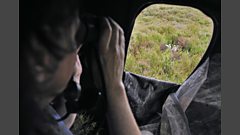Hen Harriers: Trust in Conservation
Hen harriers eat grouse, and conservationists are up in arms. Monty Don asks if all sides can be brought together to find a solution.
Hen harriers are persecuted in the British Isles because they eat grouse. Seals cause problems for salmon fishermen; lions eat the livestock of pastoralists in Africa and so on. All over the world there are conflicts between people and wildlife, often with devastating consequences. In Shared Planet this week Monty Don looks at how we are approaching solving these issues, who is taking the bull by the horns and getting people around a table to come up with a shared solution? Conflict resolution is growing area that brings together scientists, local people, businesses, NGOs and many others who are affected by wildlife conflict. It is a demanding task finding a solution that all parties feel they can accept, on a par with the negotiations undertaken with trade unions by ACAS. This new area for conservation brings political and social science to sit alongside traditional conservation ideas. Monty Don investigates.
Last on
More episodes
Previous
Dr Juliette Young

This experience combined with her early research at CEH led her to realise that people with differing, often conflicting, perceptions of nature and its management were central to conservation outcomes. As a result she did a PhD in political science at the University of East Anglia to understand how people view the natural world and to develop sustainable solutions to complex problems.
Within the context of understanding the social dimensions of nature conservation, she researches public attitudes towards biodiversity, the communication between scientists and decision-makers, and human conflicts over nature conservation.
She has contributed to a Β and a range of .
The Centre for Ecology and Hydrology focusses on integrated research in terrestrial and freshwater ecosystems and their interaction with the atmosphere.
Simon Lester

Hen harriers were first recorded at Langholm in the 1980s and for several years there were between 2 and 5 pairs.Β Hen harriers have had an incredible breeding season at Langholm with a total number of 12 nests (12 females, 6 monogamous and 3 bigamous males).
10 of these nests were successful and fledged 47 young (brood sizes between three and six), which is more than in all previous breeding seasons since the start of the project combined, the other two nests were deserted during incubation.
Professor Bill Sutherland

This can involve field work, use of existing data or purely theoretical problems. He is especially interested in bird population ecology as well as the impacts of agriculture of biodiversity.
Recently he has become intrigued by understanding how decisions are made. This has involved horizon scanning to identify future issues, collation of evidence to determine which interventions are effective and then a rigorous means of weighting the evidence to guide policy and practice.
Broadcasts
- Tue 21 Oct 2014 11:00Βι¶ΉΤΌΕΔ Radio 4
- Mon 27 Oct 2014 21:00Βι¶ΉΤΌΕΔ Radio 4
Learn about habitats with The Open University
Explore the twists and connections of natural life in four different UK habitats.


